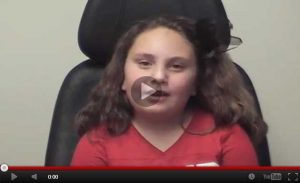What is ADD / ADHD ?
Attention Deficit Disorder (ADD) is a widespread problem. If a child has a short attention span, the common assumption is that the child has ADD and should be on medication.
If they have behavior problems, then the assumption is that they have ADHD, Attention Deficit Hyperactivity Disorder.
At times, an underlying vision problem further complicates matters. Addressing the vision problems reduces the symptoms of ADD and sometimes eliminates them entirely.
If a child has difficulty pointing their eyes in to read material (convergence), if they can’t physically focus (as you would focus a camera), or if they can’t sustain those activities, that then makes it difficult for the individual to maintain attention. More energy is needed for the visual system and there is then less energy to concentrate on reading. This then leads to a short attention span.
As stated above, the abbreviation ADD stands for Attention Deficit Disorder. Attention means the ability to concentrate. A “deficit” means “a lack of”. ADD therefore means a lack of the ability to concentrate. If someone can’t physically maintain concentrating for whatever reason, they may be then labeled ADD.
If the underlying reason for the difficulty in concentrating was because the visual system is not working well, and the child is not able to point their eyes in for the amount of time needed to complete their homework, then medication would likely not be able to correct that. As the child develops the visual ability to point their eyes to the reading material and to appropriately physically focus their eyes, they are then better able to attend and concentrate and to do that for longer periods. They are then able to complete their work.
the point is that medication is not always the answer. When a vision problem is at the root of the issue, medication will not correct the problem. Medication may increase the ability to concentrate, but it often causes the physical focusing mechanism of the eye not to work as well. Medication often masks the problem but does not solve it. Wouldn’t it be just easier to address the root problem rather than try to solve the symptoms?
Before a diagnosis of ADD/ADHD is made, (or even once it has been made) and medications prescribed, parents and teachers should first consider a comprehensive eye examination for their children. Much is at stake in the event of a misdiagnosis.
Some people dispute the effectiveness of vision therapy and say it has not been scientifically proven. Numerous scientific studies published in Optometry and Vision Science, Optometry: Journal of the American Optometric Association, American Journal of Optometry and Physiological Optics, Documenta Ophthalmologica and American Journal of Ophthalmology demonstrate that Vision Therapy is an effective treatment for vision problems including eye focusing, eye coordination, amblyopia (lazy eye) and strabismus (crossed eyes).
Please click here to read an article by Dr. David Granet, ophthalmologist, on: The Relationship Between Convergence Insufficiency and ADHD.
You can also read this article embedded within our website by clicking on the link at the bottom of this page. To read definitions of Vision Therapy by outside sources, visit children-special-needs.org.
Looking for more information on ADD/ADHD & Vision?
Send us your questions or comments.
Patients Testimonials
Our patients and parents talk about the profound improvements achieved through effective Vision Therapy. Click on the images to hear their stories! We now have a blog which may include even more testimonials!





Appointment times may vary so call us for availability.